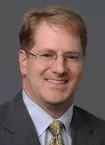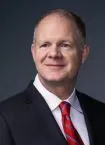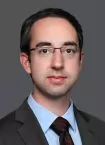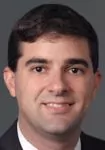Edited and authored by Mayer Brown lawyers—and featuring a foreword by Facebook, Inc. Vice President and Deputy General Counsel Paul S. Grewal who previously served as a US Magistrate Judge in the Northern District of California—Washington Legal Foundation's Monograph "Admissibility of Expert Testimony: Manageable Guidance for Judicial Gatekeeping" assesses the key principles federal and state judges should follow when assessing the admissibility of expert testimony in civil litigation. Expert testimony not only can decide the outcome of products-liability and toxic-tort lawsuits, but also can impact key rulings such as class-action certification and damages determinations. Judges must act as "gatekeepers" to ensure that juries are shielded from junk science and false expertise.
The Monograph's first part discusses four aspects of the judicial gatekeeping function that cut across different substantive areas of law. The authors first explain how the US Supreme Court's "Daubert trilogy" of decisions established the scope of a judge's gatekeeping duties. They next illustrate how "hired-gun" experts complicate a juror's task of deciding liability and how courts can mitigate the confusion. They go on to address how courts must answer a "recurring riddle"—does the expert's testimony implicate the evidence's admissibility (a judicial function) or does it go to its weight (a jury's responsibility). Finally, the authors analyze the tools judges can use to weed out junk science, including holding Daubert hearings and appointing independent technical experts.
The Monograph's second part delves deeper into these critical aspects of gatekeeping through case studies. The authors explore in detail judicial best-practices for determining relevance and reliability in four areas of law: (1) medical causation; (2) insurance bad faith; (3) class-action certification; and (4) valuation testimony for damage calculations. The medical-causation case study offers especially valuable insights on how judges should manage experts testifying on general and specific causation.
Electronic copies of this Monograph are available online at www.wlf.org. Inquire about additional hard copies with WLF Legal Studies Division Chief Counsel Glenn Lammi (glammi@wlf.org).
To read this complete article visit Washington Legal Foundation.
Originally Published by Washington Legal Foundation
Visit us at mayerbrown.com
Mayer Brown is a global legal services provider comprising legal practices that are separate entities (the "Mayer Brown Practices"). The Mayer Brown Practices are: Mayer Brown LLP and Mayer Brown Europe – Brussels LLP, both limited liability partnerships established in Illinois USA; Mayer Brown International LLP, a limited liability partnership incorporated in England and Wales (authorized and regulated by the Solicitors Regulation Authority and registered in England and Wales number OC 303359); Mayer Brown, a SELAS established in France; Mayer Brown JSM, a Hong Kong partnership and its associated entities in Asia; and Tauil & Chequer Advogados, a Brazilian law partnership with which Mayer Brown is associated. "Mayer Brown" and the Mayer Brown logo are the trademarks of the Mayer Brown Practices in their respective jurisdictions.
© Copyright 2019. The Mayer Brown Practices. All rights reserved.
This Mayer Brown article provides information and comments on legal issues and developments of interest. The foregoing is not a comprehensive treatment of the subject matter covered and is not intended to provide legal advice. Readers should seek specific legal advice before taking any action with respect to the matters discussed herein.






